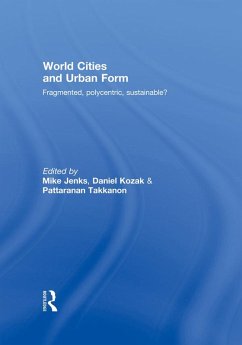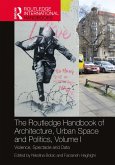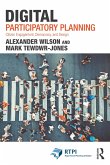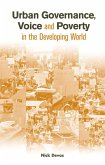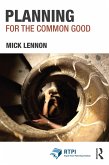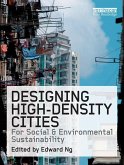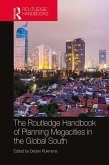World Cities and Urban Form (eBook, PDF)
Fragmented, Polycentric, Sustainable?
Redaktion: Jenks, Mike; Takkanon, Pattaranan; Kozak, Daniel
49,95 €
49,95 €
inkl. MwSt.
Sofort per Download lieferbar

25 °P sammeln
49,95 €
Als Download kaufen

49,95 €
inkl. MwSt.
Sofort per Download lieferbar

25 °P sammeln
Jetzt verschenken
Alle Infos zum eBook verschenken
49,95 €
inkl. MwSt.
Sofort per Download lieferbar
Alle Infos zum eBook verschenken

25 °P sammeln
World Cities and Urban Form (eBook, PDF)
Fragmented, Polycentric, Sustainable?
Redaktion: Jenks, Mike; Takkanon, Pattaranan; Kozak, Daniel
- Format: PDF
- Merkliste
- Auf die Merkliste
- Bewerten Bewerten
- Teilen
- Produkt teilen
- Produkterinnerung
- Produkterinnerung

Bitte loggen Sie sich zunächst in Ihr Kundenkonto ein oder registrieren Sie sich bei
bücher.de, um das eBook-Abo tolino select nutzen zu können.
Hier können Sie sich einloggen
Hier können Sie sich einloggen
Sie sind bereits eingeloggt. Klicken Sie auf 2. tolino select Abo, um fortzufahren.

Bitte loggen Sie sich zunächst in Ihr Kundenkonto ein oder registrieren Sie sich bei bücher.de, um das eBook-Abo tolino select nutzen zu können.
This book presents new research and theory showing the forms metropolitan regions might take to achieve sustainability. City case studies throughout show how both planning and flagship design can propel cities into world class status.
- Geräte: PC
- mit Kopierschutz
- eBook Hilfe
- Größe: 14.03MB
Andere Kunden interessierten sich auch für
![The Routledge Handbook of Architecture, Urban Space and Politics, Volume I (eBook, PDF) The Routledge Handbook of Architecture, Urban Space and Politics, Volume I (eBook, PDF)]() The Routledge Handbook of Architecture, Urban Space and Politics, Volume I (eBook, PDF)45,95 €
The Routledge Handbook of Architecture, Urban Space and Politics, Volume I (eBook, PDF)45,95 €![Digital Participatory Planning (eBook, PDF) Digital Participatory Planning (eBook, PDF)]() Alexander WilsonDigital Participatory Planning (eBook, PDF)37,95 €
Alexander WilsonDigital Participatory Planning (eBook, PDF)37,95 €![Urban Governance Voice and Poverty in the Developing World (eBook, PDF) Urban Governance Voice and Poverty in the Developing World (eBook, PDF)]() Nick DevasUrban Governance Voice and Poverty in the Developing World (eBook, PDF)39,95 €
Nick DevasUrban Governance Voice and Poverty in the Developing World (eBook, PDF)39,95 €![Evictions in the UK (eBook, PDF) Evictions in the UK (eBook, PDF)]() Joe CrawfordEvictions in the UK (eBook, PDF)38,95 €
Joe CrawfordEvictions in the UK (eBook, PDF)38,95 €![Planning for the Common Good (eBook, PDF) Planning for the Common Good (eBook, PDF)]() Mick LennonPlanning for the Common Good (eBook, PDF)38,95 €
Mick LennonPlanning for the Common Good (eBook, PDF)38,95 €![Designing High-Density Cities (eBook, PDF) Designing High-Density Cities (eBook, PDF)]() Designing High-Density Cities (eBook, PDF)47,95 €
Designing High-Density Cities (eBook, PDF)47,95 €![The Routledge Handbook of Planning Megacities in the Global South (eBook, PDF) The Routledge Handbook of Planning Megacities in the Global South (eBook, PDF)]() The Routledge Handbook of Planning Megacities in the Global South (eBook, PDF)45,95 €
The Routledge Handbook of Planning Megacities in the Global South (eBook, PDF)45,95 €-
-
-
This book presents new research and theory showing the forms metropolitan regions might take to achieve sustainability. City case studies throughout show how both planning and flagship design can propel cities into world class status.
Dieser Download kann aus rechtlichen Gründen nur mit Rechnungsadresse in A, B, BG, CY, CZ, D, DK, EW, E, FIN, F, GR, HR, H, IRL, I, LT, L, LR, M, NL, PL, P, R, S, SLO, SK ausgeliefert werden.
Produktdetails
- Produktdetails
- Verlag: Taylor & Francis
- Seitenzahl: 384
- Erscheinungstermin: 2. Dezember 2013
- Englisch
- ISBN-13: 9781317796855
- Artikelnr.: 40111823
- Verlag: Taylor & Francis
- Seitenzahl: 384
- Erscheinungstermin: 2. Dezember 2013
- Englisch
- ISBN-13: 9781317796855
- Artikelnr.: 40111823
- Herstellerkennzeichnung Die Herstellerinformationen sind derzeit nicht verfügbar.
Mike Jenks is Professor Emeritus and Founder Director of the Oxford Institute for Sustainable Development (OISD) at Oxford Brookes University, United Kingdom. Daniel Kozak teaches at the Faculty of Architecture, University of Buenos Aires, Argentina, and is also a PhD researcher at OISD, Oxford Brookes University. Pattaranan Takkanon is Lecturer at the Faculty of Architecture, Kasetsart University, Bangkok, Thailand.
Introduction: World cities and urban form Part 1: Theoretical Approaches in
a Global Context 1. What is a 'World Class' City? Comparing conceptual
specifications of cities in the context of a global urban network 2.
Globalisation and the Forms of Cities 3. The World City Hypothesis
Revisited: Export and import of urbanity is a dangerous business 4.
Sustainability and the 'World Class' City: What is being sustained and for
who? 5. Polycentrism and 'Defragmentation': Towards a more sustainable
urban form? Part 2: Polycentric Regions and Cities: perspectives from
Europe, Asia and North America 6. Promoting Sustainable Urban Form:
Implementing urban consolidation policies around the Helsinki Metropolitan
Region 7. Spatial Disparities Based on Human and Social Capital 8. The
Model Barcelona: 1979-2004 and beyond 9. Sustainable 'World Class' Cities
and Glocal Sprawl in Southeast Asian Metropolitans 10. Quality of Life and
Spatial Urban Forms of Mega-city Regions in Japan 11. Global Integration,
Growth Patterns and Sustainable Development: A case study of the peri-urban
area of Shanghai 12. Taichung the Waiting Metropolis and its Campaign
towards a 'World Class' City: A case of glocollision, glocoalition or
glocalisation? 13. 'World Class' Vancouver: A terminal city re-imagined 14.
Planning a 'World Class' City without Zoning: The experience of Houston
Part 3: Aspects of Urban Fragmentation 15. Assessing Urban Fragmentation:
The emergence of new typologies in central Buenos Aires 16. Tracking
Sustainable Urban Forms and Material Flows in Singapore 17. The Right to
the City: Stakeholder perspectives of Greater Cairo Metropolitan
communities 18. 'World Class' Living? 19. Bangkok's Struggle to Achieve a
Successful Transportation System 20. To be or not to be a 'World Class'
City? Poverty and urban form in Paris and Bucharest 21. Inner Truth of the
Slums in Mega Cities: A scenario from India Conclusion: The Form of Cities
to Come?
a Global Context 1. What is a 'World Class' City? Comparing conceptual
specifications of cities in the context of a global urban network 2.
Globalisation and the Forms of Cities 3. The World City Hypothesis
Revisited: Export and import of urbanity is a dangerous business 4.
Sustainability and the 'World Class' City: What is being sustained and for
who? 5. Polycentrism and 'Defragmentation': Towards a more sustainable
urban form? Part 2: Polycentric Regions and Cities: perspectives from
Europe, Asia and North America 6. Promoting Sustainable Urban Form:
Implementing urban consolidation policies around the Helsinki Metropolitan
Region 7. Spatial Disparities Based on Human and Social Capital 8. The
Model Barcelona: 1979-2004 and beyond 9. Sustainable 'World Class' Cities
and Glocal Sprawl in Southeast Asian Metropolitans 10. Quality of Life and
Spatial Urban Forms of Mega-city Regions in Japan 11. Global Integration,
Growth Patterns and Sustainable Development: A case study of the peri-urban
area of Shanghai 12. Taichung the Waiting Metropolis and its Campaign
towards a 'World Class' City: A case of glocollision, glocoalition or
glocalisation? 13. 'World Class' Vancouver: A terminal city re-imagined 14.
Planning a 'World Class' City without Zoning: The experience of Houston
Part 3: Aspects of Urban Fragmentation 15. Assessing Urban Fragmentation:
The emergence of new typologies in central Buenos Aires 16. Tracking
Sustainable Urban Forms and Material Flows in Singapore 17. The Right to
the City: Stakeholder perspectives of Greater Cairo Metropolitan
communities 18. 'World Class' Living? 19. Bangkok's Struggle to Achieve a
Successful Transportation System 20. To be or not to be a 'World Class'
City? Poverty and urban form in Paris and Bucharest 21. Inner Truth of the
Slums in Mega Cities: A scenario from India Conclusion: The Form of Cities
to Come?
Introduction: World cities and urban form Part 1: Theoretical Approaches in
a Global Context 1. What is a 'World Class' City? Comparing conceptual
specifications of cities in the context of a global urban network 2.
Globalisation and the Forms of Cities 3. The World City Hypothesis
Revisited: Export and import of urbanity is a dangerous business 4.
Sustainability and the 'World Class' City: What is being sustained and for
who? 5. Polycentrism and 'Defragmentation': Towards a more sustainable
urban form? Part 2: Polycentric Regions and Cities: perspectives from
Europe, Asia and North America 6. Promoting Sustainable Urban Form:
Implementing urban consolidation policies around the Helsinki Metropolitan
Region 7. Spatial Disparities Based on Human and Social Capital 8. The
Model Barcelona: 1979-2004 and beyond 9. Sustainable 'World Class' Cities
and Glocal Sprawl in Southeast Asian Metropolitans 10. Quality of Life and
Spatial Urban Forms of Mega-city Regions in Japan 11. Global Integration,
Growth Patterns and Sustainable Development: A case study of the peri-urban
area of Shanghai 12. Taichung the Waiting Metropolis and its Campaign
towards a 'World Class' City: A case of glocollision, glocoalition or
glocalisation? 13. 'World Class' Vancouver: A terminal city re-imagined 14.
Planning a 'World Class' City without Zoning: The experience of Houston
Part 3: Aspects of Urban Fragmentation 15. Assessing Urban Fragmentation:
The emergence of new typologies in central Buenos Aires 16. Tracking
Sustainable Urban Forms and Material Flows in Singapore 17. The Right to
the City: Stakeholder perspectives of Greater Cairo Metropolitan
communities 18. 'World Class' Living? 19. Bangkok's Struggle to Achieve a
Successful Transportation System 20. To be or not to be a 'World Class'
City? Poverty and urban form in Paris and Bucharest 21. Inner Truth of the
Slums in Mega Cities: A scenario from India Conclusion: The Form of Cities
to Come?
a Global Context 1. What is a 'World Class' City? Comparing conceptual
specifications of cities in the context of a global urban network 2.
Globalisation and the Forms of Cities 3. The World City Hypothesis
Revisited: Export and import of urbanity is a dangerous business 4.
Sustainability and the 'World Class' City: What is being sustained and for
who? 5. Polycentrism and 'Defragmentation': Towards a more sustainable
urban form? Part 2: Polycentric Regions and Cities: perspectives from
Europe, Asia and North America 6. Promoting Sustainable Urban Form:
Implementing urban consolidation policies around the Helsinki Metropolitan
Region 7. Spatial Disparities Based on Human and Social Capital 8. The
Model Barcelona: 1979-2004 and beyond 9. Sustainable 'World Class' Cities
and Glocal Sprawl in Southeast Asian Metropolitans 10. Quality of Life and
Spatial Urban Forms of Mega-city Regions in Japan 11. Global Integration,
Growth Patterns and Sustainable Development: A case study of the peri-urban
area of Shanghai 12. Taichung the Waiting Metropolis and its Campaign
towards a 'World Class' City: A case of glocollision, glocoalition or
glocalisation? 13. 'World Class' Vancouver: A terminal city re-imagined 14.
Planning a 'World Class' City without Zoning: The experience of Houston
Part 3: Aspects of Urban Fragmentation 15. Assessing Urban Fragmentation:
The emergence of new typologies in central Buenos Aires 16. Tracking
Sustainable Urban Forms and Material Flows in Singapore 17. The Right to
the City: Stakeholder perspectives of Greater Cairo Metropolitan
communities 18. 'World Class' Living? 19. Bangkok's Struggle to Achieve a
Successful Transportation System 20. To be or not to be a 'World Class'
City? Poverty and urban form in Paris and Bucharest 21. Inner Truth of the
Slums in Mega Cities: A scenario from India Conclusion: The Form of Cities
to Come?
